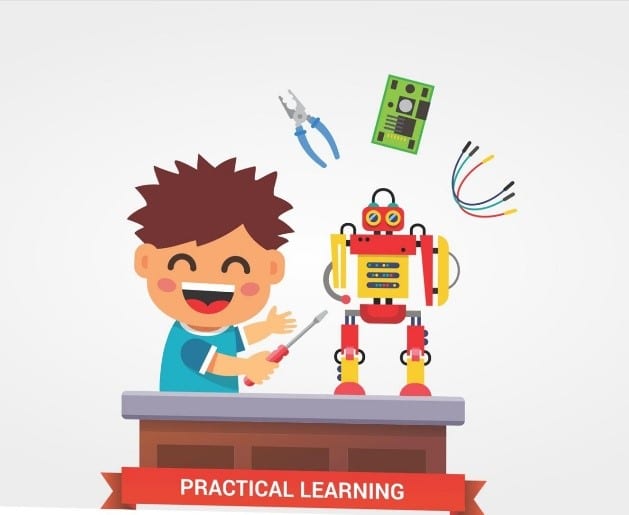When we direct our brains and take a step toward comprehending the environment and the people around us, our empirical knowledge assists us in establishing a mentality to act effectively. Practical knowledge informs us how to apply theory into practice in our daily lives, while theoretical information gives a framework for grasping the principles. School is one of the places where we acquire the majority of items and begin to build our knowledge base. Starting from basic knowledge of alphabets to higher knowledge of how to sell online courses, how to give presentations etc. Knowledge acquisition is the first stage in learning about any subject. In such situations, experiential learning is more vital than conceptual understanding. Practical work includes projects, activities, and running an experiment in research laboratories. Knowing theory is useless to students if they will not be able to apply it.
Meaning of integrated learning
An integrated curriculum focuses on creating meaningful connections across courses or skills that typically cover many topic areas. Students can learn more effectively if the curriculum is integrated. The purpose of an integrated learning approach is to focus on curriculum-based learning. It focuses on connecting ideas and situations so that skills and experiences can be utilized to new and challenging issues. The intellectual and practical capabilities of a learner must be developed. A current method that can be employed is integrated learning. Integrated learning integrates classroom learning with problem-solving abilities in the actual world for pupils.
Knowledge is defined as acquaintance in something, which include data, knowledge about a specific specific subject, explanations of experiments or investigations, or skills acquired via experience or education.
What is the distinction between theory and practice knowledge?
Practical learning knowledge refers to the knowledge received from day-to-day tasks. It is mostly based on real-life activities and responsibilities, and it can be gained by accomplishing things on a daily basis. It helps you build precise tactics that you can use as weapons to achieve your goals. Some actions can only be recognised once they’ve been tried and tested. Theoretical part, however, is acquired by deductive reasoning and the use of techniques. It illuminates us as to why something is the way it is. It is influenced by the experiences of a variety of people and teaches them via them. It leads to a better comprehension of a technique, as well as a better understanding of the nature and interpretation of why it works. In order to attain the objectives, it is necessary to frame tactics.
Practical knowledge is extremely important in schools. Consider some of the causes why experiential learning is so important in classrooms.
- Any work that students complete helps them grasp and recall the content better. Any student’s effort helps them gain awareness on a subject or situation, and it sticks with them comparatively for a longer time.
- Practical practice aids experiential learning.Every instructional theory should be backed up with evidence of how it can be implemented in the laboratory or in real life, as this helps us understand how ideas are important when we use them.
- Self-learning is aided by getting your hands filthy. Understanding all of the models and ideas, as well as putting them into practice and observing the consequences, offers a lot of flexibility and learning new things on your own.
- Because greater practice leads to expertise, usefulness leads towards becoming an expert on the issue. Students know how to apply ideas in applied knowledge when they repeat the same task, which shows if they made an error. Correcting their mistakes increases their skills and elevates them to the status of experts.
- The lecture method gets tedious after a certain period of time, so practical learning activity or usage of online courses platform is a welcome change. Sitting in a classroom for lengthy periods of time every day becomes monotonous, and students lose interest in understanding and concentration. By expressing intellectual ideas practically, students’ interest is kept and a positive attitude toward classroom learning is elicited.
- For projects that need it, practical work is frequently conducted in groups. Working in groups fosters interpersonal characteristics and values such as sharing, collaboration, kindness, and partnership.

